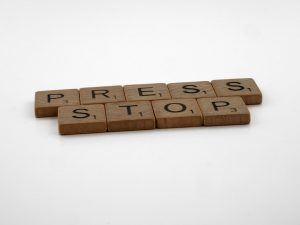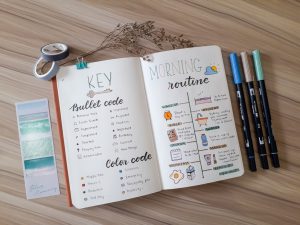Embrace the Power of a Moment for Mindful Living
Discover how embracing a single moment can transform your mindfulness journey. Start living with intention today. Read more to find peace.
Understanding the concept
The Essence of a Moment
In the fast-paced world we live in, the concept of a “moment” often gets overlooked. A moment is more than just a brief period of time; it is a snapshot of experience, a fragment of life that holds significance beyond its temporal brevity.
Understanding a moment requires us to pause and appreciate the depth and richness it can offer.
Moments are the building blocks of our memories and experiences. Each one, when fully embraced, can provide insight, joy, or a lesson.
Recognizing the essence of a moment involves being present and mindful, allowing us to connect more deeply with ourselves and the world around us.
The Psychological Impact
The psychological impact of understanding and appreciating moments can be profound. When we take the time to acknowledge and savor moments, we enhance our mental well-being.
This practice can lead to increased happiness, reduced stress, and a greater sense of fulfillment. Mindfulness, a practice that encourages living in the moment, has been shown to improve emotional regulation and cognitive flexibility.
By focusing on the present, we can break free from the constant cycle of worry about the future or regret about the past.
This shift in focus allows us to experience life more fully and with greater clarity, leading to a more balanced and content state of mind.
Cultural Interpretations
Different cultures have unique interpretations of what constitutes a moment and how it should be valued. In some Eastern philosophies, such as Buddhism, the present moment is seen as the only reality, emphasizing the importance of living in the now.
This contrasts with some Western perspectives that often prioritize future planning and goal setting.
Understanding these cultural differences can enrich our own perception of moments, allowing us to adopt a more holistic view. By integrating diverse cultural insights, we can learn to appreciate the transient beauty of moments and their role in shaping our lives.
Practical Applications
Incorporating an understanding of moments into daily life can be achieved through simple practices.
Mindfulness meditation, journaling, and reflective practices are effective ways to cultivate an awareness of the present. These activities encourage us to slow down and appreciate the subtleties of each moment, fostering a deeper connection with our surroundings.
Additionally, setting aside time to reflect on the day’s moments can help reinforce their significance.
By consciously acknowledging the impact of these moments, we can enhance our overall quality of life and develop a greater appreciation for the everyday experiences that often go unnoticed.
Importance in daily life
Mindfulness and Presence
In our fast-paced world, taking “just a moment” to pause can significantly enhance mindfulness and presence. This brief pause allows individuals to reconnect with their surroundings and themselves, fostering a deeper awareness of the present moment.
By regularly incorporating these pauses into daily routines, individuals can reduce stress and improve mental clarity.
Decision Making
When faced with decisions, taking “just a moment” to reflect can lead to more thoughtful and informed choices. This brief interlude provides the space needed to weigh options, consider consequences, and align decisions with personal values and goals.
By avoiding impulsive actions, individuals can enhance the quality of their decisions.
Emotional Regulation
Emotions can often be overwhelming, leading to reactions that may not align with one’s true intentions. Taking “just a moment” before responding to emotional triggers can help in regulating emotions more effectively.
This pause allows individuals to process their feelings, leading to more measured and constructive responses.
Interpersonal Relationships
In interactions with others, taking “just a moment” before responding can improve communication and strengthen relationships. This pause provides an opportunity to listen actively, understand different perspectives, and respond with empathy.
By fostering more thoughtful and considerate interactions, individuals can build stronger connections with those around them.
Productivity and Focus
Amidst the distractions of daily life, taking “just a moment” to refocus can boost productivity. Short breaks allow the mind to reset, improving concentration and efficiency in tasks.
By integrating these pauses into work routines, individuals can enhance their ability to maintain focus and achieve their goals more effectively.
Ways to embrace it
Practice Mindfulness
Mindfulness is a powerful tool for embracing the present moment. By focusing on your breath and observing your thoughts without judgment, you can cultivate a deeper awareness of the here and now.
Regular mindfulness practice can help you develop a greater appreciation for the present, reducing stress and enhancing your overall well-being.
Engage in Deep Breathing
Deep breathing exercises can help you center yourself and bring your focus back to the present moment. By taking slow, deliberate breaths, you can calm your mind and body, making it easier to embrace the current experience.
This simple technique can be practiced anywhere and is an effective way to ground yourself in the moment.
Limit Distractions
In today’s fast-paced world, distractions are everywhere. To fully embrace the moment, it’s important to minimize these interruptions.
Whether it’s turning off notifications on your phone or setting aside specific times for checking emails, reducing distractions can help you stay present and engaged in whatever you’re doing.
Practice Gratitude
Gratitude is a powerful way to embrace the present moment. By acknowledging and appreciating the positive aspects of your life, you can shift your focus away from what you lack and towards what you have.
Keeping a gratitude journal or simply taking a moment each day to reflect on what you’re thankful for can enhance your ability to live in the moment.
Engage in Physical Activity
Physical activity is an excellent way to connect with the present. Whether it’s a brisk walk, a yoga session, or a workout at the gym, moving your body can help you become more aware of your surroundings and sensations.
This increased awareness can make it easier to embrace the moment and enjoy the experience fully.
Connect with Nature
Spending time in nature can be a profound way to embrace the present moment. The sights, sounds, and smells of the natural world can ground you and provide a sense of peace and presence.
Whether it’s a hike in the mountains or a stroll through a local park, connecting with nature can help you appreciate the beauty of the moment.
Mindfulness practices for beginners
Understanding Mindfulness
Mindfulness is the practice of being present and fully engaged with the current moment without judgment. It involves paying attention to thoughts, feelings, and the environment around you.
For beginners, understanding the essence of mindfulness is the first step towards integrating it into daily life.
Breathing Exercises
One of the simplest ways to begin practicing mindfulness is through focused breathing exercises. Start by finding a quiet space where you can sit comfortably.
Close your eyes and take a deep breath in through your nose, allowing your chest and abdomen to expand. Hold your breath for a moment and then slowly exhale through your mouth.
Repeat this process several times, concentrating solely on the rhythm of your breath.
Body Scan Meditation
Body scan meditation is an effective technique for beginners to cultivate mindfulness. Lie down in a comfortable position and close your eyes.
Gradually bring your attention to different parts of your body, starting from your toes and moving up to your head. Notice any sensations, tension, or discomfort.
This practice helps in developing a deeper connection with your physical self and promotes relaxation.
Mindful Eating
Mindful eating involves paying full attention to the experience of eating and drinking. Begin by observing the colors, textures, and aromas of your food.
Take small bites and chew slowly, savoring each flavor. This practice not only enhances your enjoyment of food but also aids in better digestion and can help in recognizing hunger and fullness cues.
Walking Meditation
Walking meditation is a form of mindfulness that can be practiced anywhere.
Choose a quiet place to walk slowly and deliberately. Focus on the sensation of your feet touching the ground, the movement of your legs, and the rhythm of your breath.
Walking meditation helps in grounding oneself and can be a refreshing break from sedentary activities.
Mindful Journaling
Journaling is a powerful tool for reflecting on daily experiences and emotions. Set aside a few minutes each day to write about your thoughts and feelings.
This practice encourages self-awareness and can help in identifying patterns in your emotions and behaviors. Mindful journaling fosters a deeper understanding of oneself and promotes emotional well-being.
FAQ
Q1: What does the phrase “Just a moment…” signify in the context of health and lifestyle changes?
A1: In the context of health and lifestyle changes, “Just a moment…” often signifies the importance of taking a pause to reflect before making decisions or changes. It emphasizes mindfulness and the need to consider the implications and benefits of a new habit or routine. This moment of reflection can lead to more informed and sustainable choices, whether it’s about starting a new diet, exercise routine, or stress management technique.
Q2: How long does it typically take to see results from lifestyle changes, and why is patience important?
A2: The time it takes to see results from lifestyle changes can vary significantly depending on the nature of the change and individual factors. For instance, improvements in energy levels or mood might be noticed within a few days or weeks, while significant weight loss or muscle gain can take months. Patience is crucial because sustainable changes often require consistent effort over time. Rushing or expecting immediate results can lead to frustration and abandonment of healthy habits.
Q3: What are some common concerns people have when implementing new health routines, and how can they be addressed?
A3: Common concerns when implementing new health routines include fear of failure, lack of time, and uncertainty about effectiveness. To address these concerns, it’s helpful to set realistic goals, create a structured plan, and seek support from professionals or communities. Breaking down larger goals into smaller, manageable steps can also help maintain motivation and track progress. Additionally, understanding that setbacks are part of the process can encourage persistence and resilience.
Takeaway
“Ready to boost your well-being? Start by incorporating a simple new habit today. Share this insightful article with your friends to spread the positivity. For more evidence-based health tips, explore reputable resources like WHO or trusted health websites. Your journey to a healthier lifestyle starts now!”











Comments